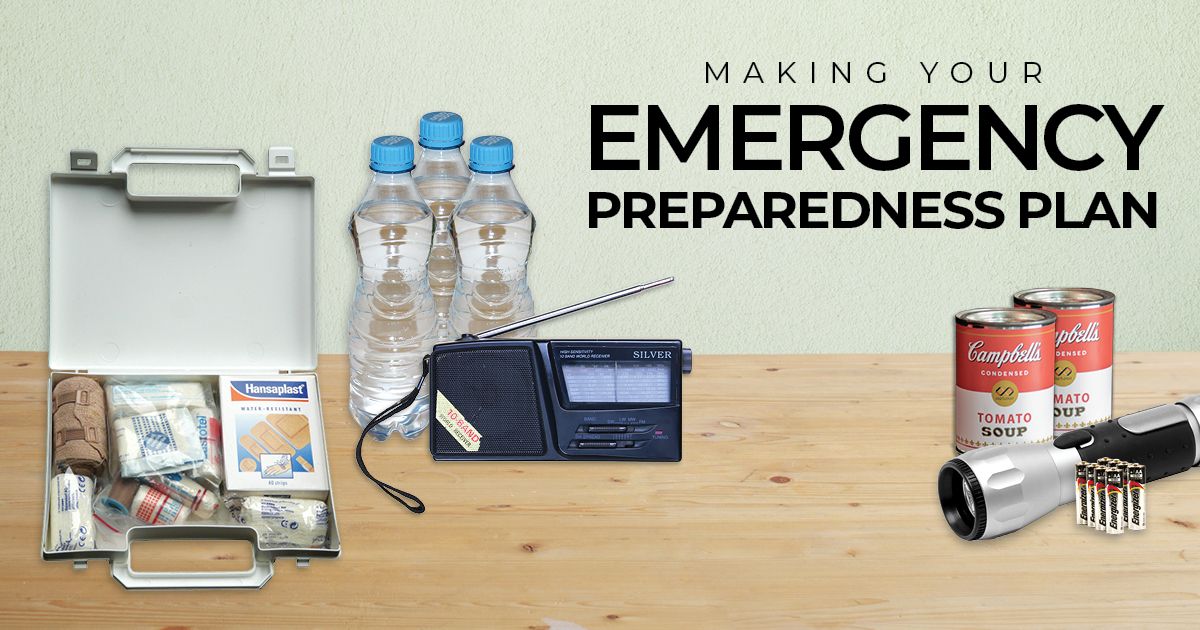September is Emergency Preparedness Month. Is your family prepared for an emergency?
It’s difficult to imagine the worst, but disasters and emergencies can happen at any time without warning. There are simple things you can do to help cope with a serious event–and ease your mind.
It’s important to have an easy-to-follow, step-by-step plan to help you prepare for a natural disaster, terrorist threat, or other emergencies. Here we break down emergency preparedness into three easy steps and tell you what need to know to keep you and your family safe.
PACK an Emergency Kit: Gather the essential supplies you and your family will need for 3-5 days if you can’t leave your house or if you need to evacuate.
- Water: 1 gallon per day per person, and formula if you have any young children
- Food: Non-perishable food, baby food (if necessary), pet food (if necessary), a can opener, utensils
- Light: Flashlight, batteries, candles, lighter/waterproof matches
- Warmth: A durable, sensible change of clothes for everyone in your family, blanket, sleeping bags
- Communication: Cell phone power bank charger, battery operated radio, personal documents (passport, social security card, will, etc.) ideally in a fireproof/waterproof safe
- Essentials: Toilet paper, first-aid kit, medication, diapers, cash, glasses, extra key, credit card
PLAN your response to specific emergencies so you will be better prepared if and when an emergency occurs. Some events are more likely than others, depending on your geographic location-you may want to focus more on hurricane preparedness if you live in Florida, or a blizzard if you live in Vermont. Typical emergencies include:
- Household fire
- Natural disaster (tornado, hurricane, earthquake)
- Severe weather (flood, snow/ice storm)
- Terrorism event (area lock-down, bombing, intruder)
PRACTICE your emergency plan with your family so you will be able to respond quickly and calmly to any emergency.
- Practice evacuation drills: Make it a fun intro on family game nights.
- Review regularly: At least once every other month.
- Quiz them on it: Be sure everyone remembers the plan correctly.
- Refresh and replenish: Check expiration dates and use soon to be expiring foods during a drill or soon to expire meds on your next vacation. Be sure to replace them BEFORE you use them.
- Test, test, test: Test your smoke/fire/carbon monoxide detectors when you change your clocks. Recharge/replace your fire extinguisher every new year.
Remember, when disaster strikes:
- Remain calm and patient.
- Follow the advice of emergency officials.
- Check on your neighbors, especially those who are elderly/disabled.
What are some ways that you can better prepare your family for an emergency? We’d love to hear your ideas on our Facebook page.

